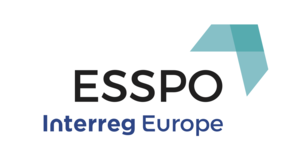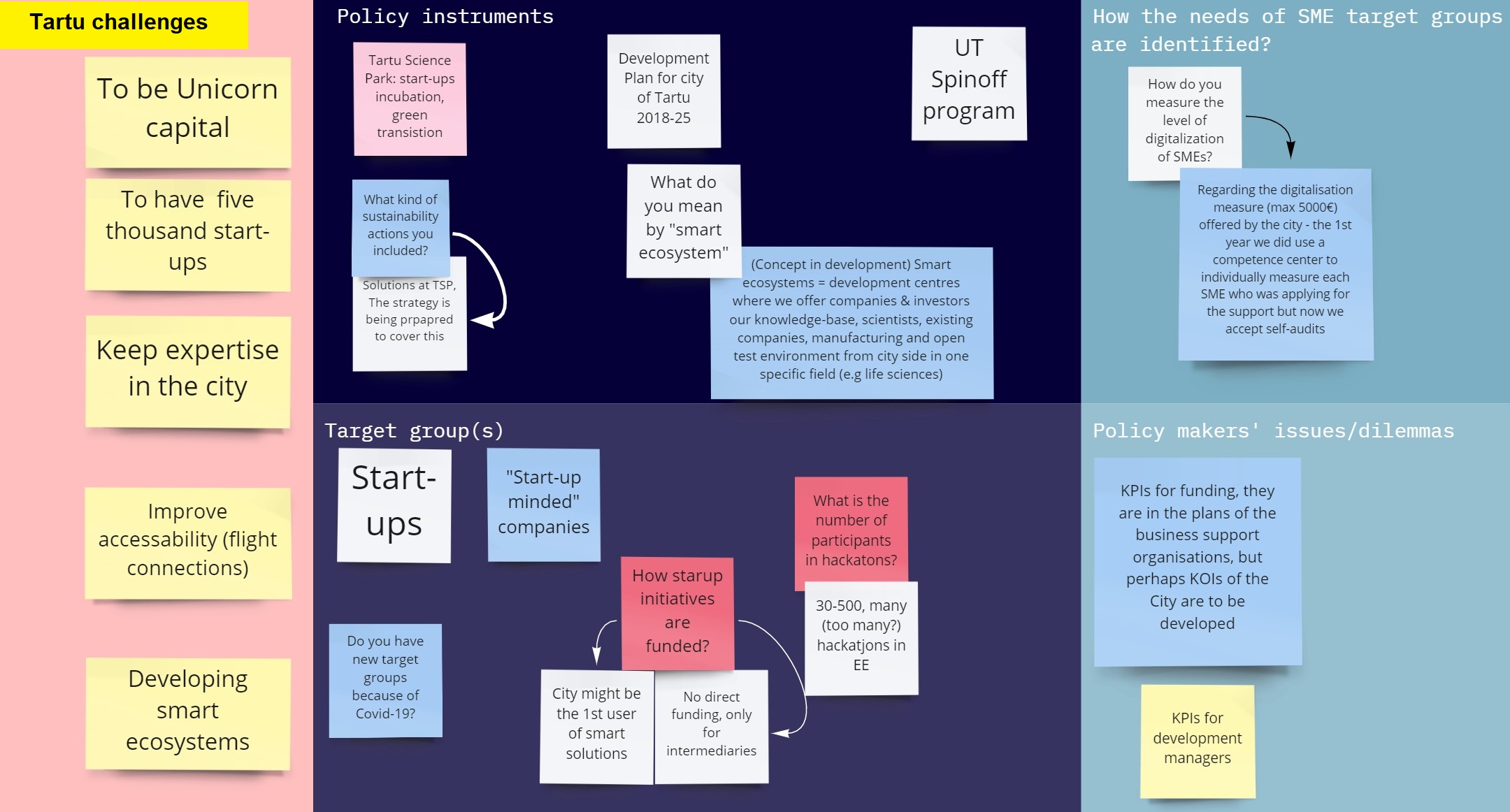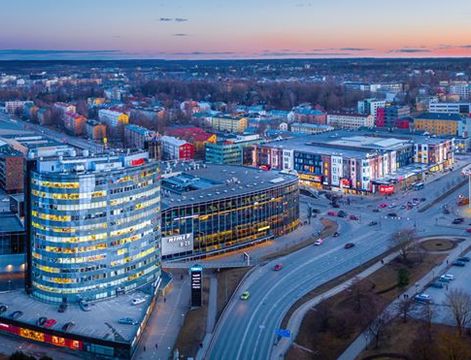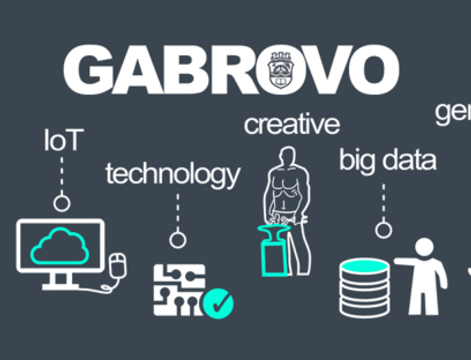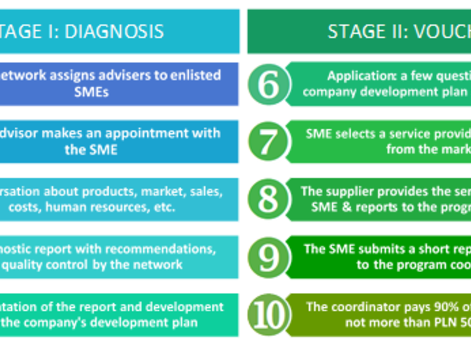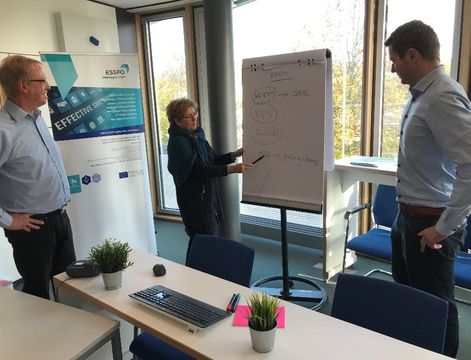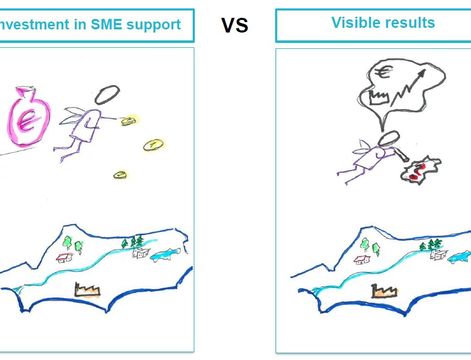Becoming an ESSPO partner: How it began
Our project team – twelve chief executives from economy, science and administration in the region - is working together to promote regional development for almost 20 years. Our permanent question has been – and still is: What can we do better, especially for our SMEs, what is the best service portfolio for them and where do we get new impulses for our task?
Uta Kupsch, CEO of a public business development unit, suggested in 2015: "Let's think about INTERREG." She had learned to know and appreciate the program while working in Brandenburg. From her report it became clear: The effort is considerable - for application and implementation - the success is not certain, but the process holds chances. The whole team was curious. What could INTERREG Europe do for us?
With an urgent question on the table, an experienced lead partner, an attractive subsidy rate and the backing of a trusted local advisor, it was not difficult to convince key players in the region to participate in the project.
Concerned about the future of our Knowledge and Technology Transfer scheme, funded by ERDF, we joined ESSPO and started an impressive journey.
Lessons learned
Uncertainty about the continuation of the KTT by the responsible state government after 2020 made us think about how to evaluate the effects in an adequate way and to collect reliable arguments. Accordingly, we participated in the ESSPO Monitoring and Evaluation Task Force, which discussed European best practices and possible action in Tartu. The surprisingly simple recommendation of the partners was: Think simple! Operational or regional indicators are not appropriate given the low budgets of KTT. The key factors should be how SMEs assess the advice they receive, whether they actually implement them, and whether they perform better in comparison to those who have not yet used KTT. The outcomes are convincing – even for the state government. KTT will be continued.
On the sidelines of the project, the two Landräte (Heads of districts) who have traveled along with us to Tartu, used the opportunity to find out about Estonia's digitization strategy. Our local project partner had arranged an appointment with the mayor of Tartu, who introduced his guests (in German!) in great detail to “e-Estonia”. Landrat Tjark Bartels was very surprised in the end. "They think completely different here! While we in Germany are only worried about data protection, Estonia offensively exploits the opportunities, which digitization implies for the country and its citizens. "
On the return trip, the two Landräte were almost euphoric. In addition to the implementation of the ESSPO work results and recommendations, the suggestions for developing their own digitization strategy for the Weserbergland seemed to them even more important. Accordingly, a working group on the subject of "Smart Region Weserbergland" has been formed in the meantime, which has determined the status quo and defined an action plan in which our Estonian project partner also participated as guest and speaker. In 2021 we are going to set up a “Digital Agency” to develop and implement a digitization strategy for our four districts. An unexpected outcome of ESSPO, but very welcome, especially in these days.
Prepared for the future
After almost five years, the cooperation between the four Weserbergland districts as part of the EU project ESSPO, "Efficient Support Services Portfolio" with 9 European partners from 6 countries is now coming to an end.
“It was a very interesting experience to exchange ideas with European colleagues on a regular basis and to recognize how helpful this can be for one's own daily work,” summarizes Bettina Remmert from the Hameln-Pyrmont district. "Above all, our partner from Bulgaria gave valuable input that we have taken into account already."
The promotion of innovation is given a significantly higher priority even in another SME support instrument of our own “proInvest”. The Joint Secretariat of INTERREG Europe recognized this adjustment as a “policy change”, which means that we have achieved a key objective of the INTERREG Europe funding program. The final report and proof of use are pending by March 2021. “We are now very familiar with INTERREG. Perhaps there will be a follow-up project”, says Bettina Remmert, optimistically.
For more info see the document in the Library
